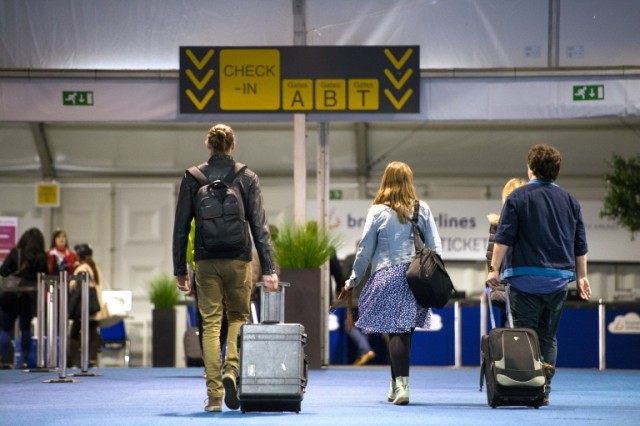Strasbourg (France) (AFP) – The European Parliament voted Thursday to allow airlines to share passenger information with EU states to help detect jihadists, culminating five years of debate that intensified after the Paris and Brussels attacks.
The parliament in Strasbourg overwhelmingly adopted the Passenger Name Record system after resolving privacy concerns raised after the European Commission, the executive of the 28-nation EU, first proposed the law in 2011.
“This is a strong expression of Europe’s commitment to fight terrorism and organised crime together through enhanced cooperation and effective intelligence sharing,” the commission said in a statement.
“The EU PNR Directive will improve the safety and security of our citizens,” the commission’s first vice president Frans Timmermans and home affairs commissioner Dimitris Avramopoulos added, citing the November 13 Paris massacres and the March 22 Brussels bombings.
One of the two Brussels airport suicide bombers, Ibrahim El Bakraoui, was deported by plane from Turkey to Europe without detection despite being a wanted man in Belgium.
The legislation passed with 416 votes for, 179 votes against and nine abstentions.
It includes “robust privacy and data protection safeguards ensuring full compliance with the right to data protection,” Avramopoulos and Timmermans said.
The vote came after interior ministers from the 28 EU nations in December finally settled privacy concerns that had hobbled negotiations with the legislature since 2011.
“The European Parliament has today united beyond its political differences to bring a very large majority behind these pieces of legislation,” the president of the parliament, Martin Schulz, said in a statement.
The United States has long urged the European Union to establish a Passenger Name Record (PNR) system where officials can detect patterns of suspicious behaviour through the sharing of passenger data.
The PNR is designed to track not only potential jihadists but also criminals, including those who smuggle people, drugs or weapons.
Timothy Kirkhope, the British conservative MEP who steered the legislation through parliament, defended the bloc-wide approach as 28 national systems can lead to dangerous gaps.
PNR can “identify the routes used by criminals and terrorists and prevent individuals from reaching their intended destinations or targets,” Kirkhope said Wednesday.
France spearheaded the drive for the PNR in the wake of the November 13 Islamic State group attacks in Paris that left 130 people dead. It made another push following the March 22 attacks in Brussels that left 32 people and were linked to those in the French capital.
– ‘Extra means’ –
The draft legislation would require airline firms to share passenger data — such as travel dates, itineraries, passport details and phone numbers — with authorities in EU destination countries.
The goal is to detect, for example, individuals who have not been flagged by authorities as presenting a threat but whose travel patterns raise suspicions.
It would then be up to one country to alert another or send a specific request for data from another country as part of an investigation.
It would apply to flights to and from destinations outside the EU, but member states could also apply them to flights within the bloc.
The data would be held for five years, though after six months key information would be “masked” and no longer be accessible, barring a specific request.
France had originally wanted the information to remain unmasked for at least one year but EU members settled in December for the six months that parliament wanted.
The vote will occur along with a separate ballot on rules over how the police and the courts use personal information.
French Prime Minister Manuel Valls visited Strasbourg on Tuesday to lobby various parliamentary groups, including fellow socialists, urging MEPs to show “responsibility” in the wake of the Brussels attacks.
“The European PNR is an extra means we will have to be effective in the fight against terrorism,” Valls said.
EU member countries will now have two years to turn it into national law.

COMMENTS
Please let us know if you're having issues with commenting.